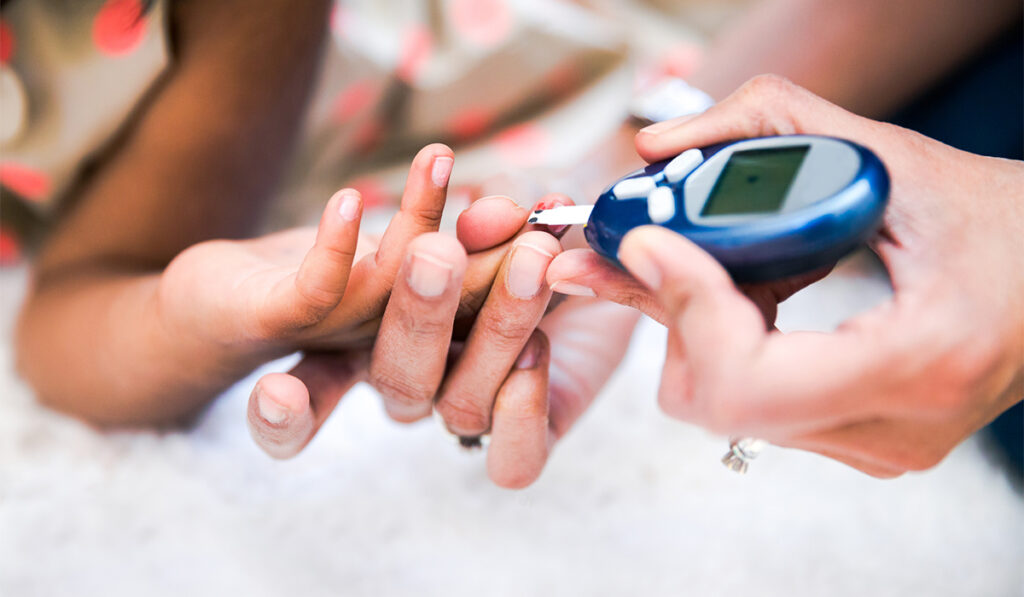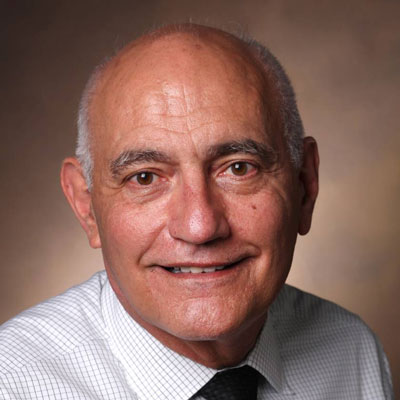Type 1 Diabetes TrialNet, a network of researchers studying the disease, has launched the first clinical trial to determine if a treatment regimen using both rituximab and abatacept can preserve insulin production in patients newly diagnosed with T1D.
Known as the T1D Relay, the study is enrolling patients between the ages of 8 and 45, with adults considered a priority. Referrals are welcome.
“We’ve had encouraging studies of rituximab in new onset type 1 diabetes and of abatacept in new onset, but never of both together,” said William E. Russell, M.D., Cornelius Vanderbilt Chair and Professor of Pediatrics, Pediatric Endocrinology at Vanderbilt University Medical Center.
“Now, we’ll be using an anti-B cell treatment, rituximab, followed by an anti-T cell treatment, abatacept, to determine if we can preserve the ability to make insulin for a longer period of time after a diagnosis.”
Russell and VUMC Associate Professor of Pediatric Endrocrinology Daniel Moore, M.D., Ph.D., are co-PIs for the study, the overarching goal of which is to determine how best to delay or prevent T1D onset at earlier stages, before blood glucose abnormalities become established.
By using rituximab first and then abatacept, researchers predict that more patients will experience prolonged insulin production during and potentially after treatment. Both drugs are often used to treat people with arthritis, Russell added.
The Ultimate Goal: Prevention
The combination study is looking at treatment for stage 3 of T1D, at which point affected individuals typically present with clinical symptoms and elevated glucose levels, Russell explained. In pursuit of that goal, the global research network has organized diverse studies that have enlarged the understanding of basic processes behind the disease.
One such study looked at the ability of abatacept alone to prevent the onset of T1D. Conducted by Russell and colleagues, and published in Diabetes Care, it was a randomized, placebo-controlled double-blinded trial conducted between 2013 and 2021.
“We wanted to see the impact we could achieve on the time it took for the patient to progress from stage 1 to stage 2 by inhibiting T cell coactivation with the abatacept,” Russell said.
In stage 1, he says, glucose tolerance is still normal. By stage 2, glucose tolerance tests show abnormalities, but haven’t reached the level for a clinical diagnosis. By stage 3, the person’s blood sugar levels are elevated enough to qualify for clinical diabetes.
“Underlying all three stages is the presence of antibodies directed at the beta cells, which produce and secrete insulin,” Russell said.
Abatacept Alone Didn’t Prevent Progression
Conducted at 33 international sites, the abatacept-only prevention study enrolled 212 participants between the ages of 6 and 45 without the disease but who were related to people with T1D.
“We know that there is a strong genetic component to this disorder,” Russell explained.
Participants were required to have abnormal glucose tolerance and two or more diabetes-related autoantibodies; anti-insulin antibodies were excluded, however. These individuals were in stage 2 of type 1 diabetes, Russell explained.
Over the course of a year, half the participants received abatacept and half received placebo. Ultimately, that trial did not provide statistically solid evidence that abatacept could delay or prevent progression from stage 1 to stage 3 illness.
Valuable Insights, Nonetheless
However, the abatacept prevention trial did provide important insights into that drug’s action and future potential. Abatacept seemed to have generally prevented activation of the T cells, which play such a key role in damaging the pancreas’s insulin-producing islet cells, the research team noted.
After one year of treatment, participants in the abatacept group had a statistically greater insulin secretion ability than patients in the placebo group. Abatacept also suppressed the prevalence of T follicular helper cells, a strong sign of abatacept’s effect on the immune system, Russell said.
In the year following cessation of the drug, each of the positive clinical and immunologic indicators of the expected effect reversed in those patients who had been treated with abatacept. Those patients became indistinguishable from those in the placebo group.
“Had there been higher rates of progression in the placebo group or a longer period of treatment, we may have seen a greater effect on the primary outcome [the rate of progression from stage 1 to stage 2],” they stated.
Next Up: Combination Study
The ongoing new trial of the two-drug combination will involve 74 people between the ages of 8 and 45, diagnosed with T1D within the previous 100 days.
All participants will receive four weekly rituximab infusions and will then go 12 weeks without any treatment. After this washout period, participants will self-administer weekly injections of either abatacept or placebo for 20 months. All participants will receive intense training in diabetes self-management.
For more information or to refer patients, please contact Moore at daniel.moore@vumc.org.






